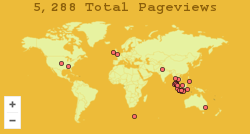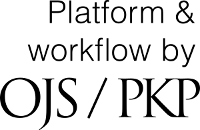Breaking Barriers: How Indonesian EFL Students Are Shaping Critical Thinking Skills for Effective Research Paper Composition
DOI:
https://doi.org/10.63088/v1s00v56Keywords:
Academic Writing, Critical Thinking, Educational Barriers, Indonesian EFL Students, Pedagogical Innovation, Research Paper Composition, Teaching StrategiesAbstract
Purpose: This study examines the development of critical thinking skills among Indonesian English as a Foreign Language (EFL) students and their impact on research paper composition. It explores the unique challenges these students encounter, particularly in crafting research papers that demonstrate clarity, coherence, and analytical rigor.
Methods: Employing a mixed-methods approach, the research combines quantitative data from structured surveys and qualitative insights from interviews and focus group discussions.
Results: The findings reveal that while students recognize the importance of critical thinking in academic writing, many struggle with constructing well-supported arguments, integrating evidence effectively, and adhering to academic conventions. The study identifies key barriers, including limited argumentation skills, restricted academic vocabulary, insufficient exposure to critical reading practices, and unfamiliarity with academic genres and formatting standards. Despite these challenges, students who actively engage in critical reading and structured analytical exercises show marked improvements in their writing coherence and argument development. The results suggest that targeted interventions such as integrating critical thinking exercises into curricula, providing scaffolded writing instruction, and enhancing feedback mechanisms can significantly enhance students’ research writing proficiency.
Conclusions: The paper concludes with actionable recommendations for educators, institutions, and policymakers to strengthen critical thinking instruction in EFL classrooms, ultimately improving academic writing outcomes in Indonesia.
Downloads
References
Anderson, J. R. (2016). Cognitive psychology and its implications (7th ed.). New York: Worth Publishers.
Anderson, J. R. (2016). Learning and memory: An integrated approach (2nd ed.). New York: Wiley.
Andrews, R. (2007). Argumentation in higher education: Improving practice through theory and research. Oxford: Routledge.
Ballard, B., & Clanchy, J. (1991). Teaching students from overseas: A brief guide for lecturers and supervisors. Harlow: Longman Cheshire.
Biggs, J. (1987). Student approaches to learning and studying. Sydney: Australian Council for Educational Research.
Biggs, J. (1994). Asian learners through Western eyes: An astigmatic paradox. Australian and New Zealand Journal of Vocational Education Research, 2(2), 40–63.
Booth, W. C., Colomb, G. G., & Williams, J. M. (2008). The craft of research (3rd ed.). Chicago: University of Chicago Press.
Bryman, A. (2016). Social research methods (5th ed.). Oxford: Oxford University Press.
Cadman, K. (2000). ‘Voices in the air’: Evaluations of the learning experiences of international postgraduates and their supervisors. Teaching in Higher Education, 5(4), 475–491.
Canagarajah, S. (2002). Critical academic writing and multilingual students. Ann Arbor: University of Michigan Press.
Casanave, C. P. (2004). Controversies in second language writing: Dilemmas and decisions in research and instruction. Ann Arbor: University of Michigan Press.
Creswell, J. W. (2014). Research design: Qualitative, quantitative, and mixed methods approaches (4th ed.). Thousand Oaks: SAGE Publications.
Egege, S., & Kutieleh, S. (2004). Critical thinking: Teaching foreign notions to foreign students. International Education Journal, 4(4), 75–85.
Ennis, R. H. (1985). A logical basis for measuring critical thinking skills. Educational Leadership, 43(2), 44–48.
Ennis, R. H. (2018). Critical thinking across the curriculum: A vision. Topoi, 37(1), 165-184.
Facione, P. A. (1990). Critical thinking: A statement of expert consensus for purposes of educational assessment and instruction. Millbrae: California Academic Press.
Facione, P. A. (2020). Critical thinking: A statement of expert consensus for purposes of educational assessment and instruction. Millbrae: California Academic Press.
Fisher, A. (2019). Critical thinking: An introduction (2nd ed.). Cambridge: Cambridge University Press.
Grabe, W., & Stoller, F. L. (2019). Teaching and Researching Reading. New York: Routledge.
Green, C., Smith, L., & Brown, J. (2020). The impact of extensive reading on higher-order thinking skills. Journal of Educational Research and Development, 45(3), 345–360.
Green, M., Cook, L., & White, A. (2020). Extensive reading and the development of higher-order thinking skills. Journal of Literacy and Language Teaching, 25(1), 12-25.
Greene, M. (2001). The arts and the creation of mind. New Haven: Yale University Press.
Guthrie, J. T., & Wigfield, A. (2017). Engagement and motivation in reading development. In K. Hall, T. Cremin, B. Comber, & L. C. Moll (Eds.), International handbook of research on children’s literacy, learning, and culture (pp. 181–198). New York: Wiley.
Halpern, D. F. (2014). Teaching critical thinking for transfer across domains. New York: Routledge.
Halpern, D. F. (2014). Thought and Knowledge: An Introduction to Critical Thinking (5th ed.). New York: Psychology Press.
Hamp-Lyons, L. (1991). Assessing second language writing in academic contexts. New York: Ablex Publishing Corporation.
Hidayati, I. (2018). Investigating EFL students' difficulties in writing research papers. Journal of Language and Literature Studies, 10(2), 45-60.
Hyland, K. (2002). Teaching and researching writing. Harlow: Longman.
Hyland, K. (2018). Genre and second language writing. Ann Arbor: University of Michigan Press.
Hyland, K. (2018). Second Language Writing (2nd ed.). Cambridge: Cambridge University Press.
King, P. M., & Kitchener, K. S. (2018). Reflective judgment: Theory and research on the development of reflective thinking. In S. A. Karabenick & T. C. Urdan (Eds.), Handbook of motivation at school (2nd ed., pp. 453-472). New York: Routledge.
Kintsch, W. (2018). Comprehension: A paradigm for cognition. Cambridge: Cambridge University Press.
Leu, D. J., Forzani, E., Rhoads, C., Maykel, C., Kennedy, C., & Timbrell, N. (2019). The new literacies of online research and comprehension: Rethinking the reading achievement gap. Reading Research Quarterly, 54(3), 353–367.
Mertens, D. M. (2014). Research and evaluation in education and psychology: Integrating diversity with quantitative, qualitative, and mixed methods (4th ed.). Thousand Oaks: SAGE Publications.
Moore, T. (2004). The critical thinking debate: How general are general thinking skills? Higher Education Research & Development, 23(1), 3–18.
National Council for Excellence in Critical Thinking Instruction. (2003). Critical thinking: Basic questions and answers. Retrieved December 25, 2024, from https://criticalthinking.org
Paul, R., & Elder, L. (2006). Critical thinking: Tools for taking charge of your learning and your life (2nd ed.). New Jersey: Pearson/Prentice Hall.
Perry, W. G. (2020). Forms of intellectual and ethical development in the college years: A scheme. New York: Wiley.
Swales, J. M., & Feak, C. B. (2004). Academic writing for graduate students: Essential tasks and skills. Ann Arbor: University of Michigan Press.
Tashakkori, A., & Teddlie, C. (Eds.). (2010). SAGE handbook of mixed methods in social & behavioral research (2nd ed.). Thousand Oaks: SAGE Publications.
UNESCO. (2019). Global Education Monitoring Report: Literacy and Reading Engagement. UNESCO Publishing.
University of Toronto Libraries. (n.d.). How to write a research paper. Retrieved December 25, 2024, from https://onesearch.library.utoronto.ca
Wagner, R. K., Torgesen, J. K., & Rashotte, C. A. (2002). The development of reading-related phonological processing abilities: New evidence of bi-directional causality from a latent variable longitudinal study. Developmental Psychology, 38(5), 701–713.
Zimmerman, B. J. (2015). Self-regulated learning and academic achievement: An overview. Educational Psychologist, 30(4), 358-366.
Downloads
Published
Issue
Section
License
Copyright (c) 2025 Yudhie Indra Gunawan, Nizam Ahsani, Aidil Syah Putra

This work is licensed under a Creative Commons Attribution 4.0 International License.
Authors retain copyright and grant the journal right of first publication with the work simultaneously licensed under a Creative Commons Attribution 4.0 International License that allows others to share the work with an acknowledgement of the work's authorship and initial publication in this journal.





